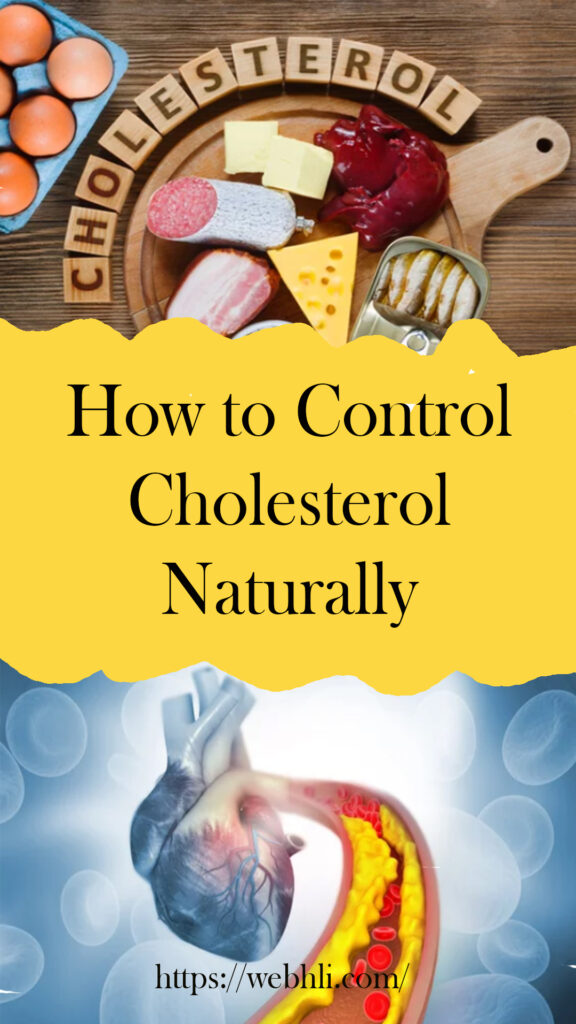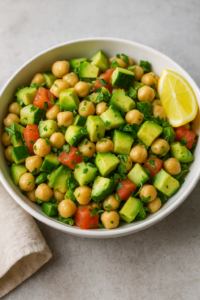
Cholesterol is a fatty substance found in your blood that your body needs to build healthy cells. However, having high levels of cholesterol can increase your risk of heart disease. Managing cholesterol levels is crucial for maintaining cardiovascular health. Fortunately, there are several natural ways to control cholesterol effectively. Here’s a comprehensive guide on how to manage your cholesterol levels naturally.
1. Adopt a Heart-Healthy Diet
a. Focus on Fruits and Vegetables Eating a variety of fruits and vegetables provides essential nutrients and antioxidants that help lower cholesterol. Aim to fill half your plate with these colorful options at every meal.
b. Choose Whole Grains Whole grains such as oats, barley, and brown rice are rich in fiber, which helps reduce the absorption of cholesterol into your bloodstream. Incorporate these into your daily diet.
c. Include Healthy Fats Replace saturated fats found in red meat and dairy products with healthier options such as olive oil, avocados, and nuts. These contain monounsaturated and polyunsaturated fats that can help lower bad cholesterol (LDL) levels.
d. Add Omega-3 Fatty Acids Foods rich in omega-3 fatty acids, like fatty fish (salmon, mackerel, and sardines), flaxseeds, and walnuts, can help increase good cholesterol (HDL) and lower triglycerides.
2. Increase Physical Activity
Regular exercise can help raise HDL cholesterol while lowering LDL cholesterol and triglycerides. Aim for at least 150 minutes of moderate aerobic activity or 75 minutes of vigorous activity per week. Activities like brisk walking, cycling, swimming, and jogging are excellent options.
3. Maintain a Healthy Weight
Being overweight or obese can raise your cholesterol levels. Losing even a small amount of weight can help lower your total cholesterol. Focus on a combination of diet and exercise to achieve and maintain a healthy weight.
4. Avoid Smoking
Smoking lowers HDL cholesterol and damages your blood vessels, making it easier for cholesterol to deposit and form plaques. Quitting smoking improves your HDL cholesterol level and benefits your heart health significantly.
5. Limit Alcohol Intake
While moderate alcohol consumption has been linked to higher levels of HDL cholesterol, excessive drinking can lead to serious health problems, including high cholesterol and heart disease. If you choose to drink, do so in moderation—up to one drink a day for women and two for men.
6. Incorporate Natural Supplements
Certain supplements have been shown to help manage cholesterol levels:
- Soluble Fiber: Supplements like psyllium husk can help reduce LDL cholesterol.
- Plant Sterols and Stanols: These compounds found in plants can help block the absorption of cholesterol.
- Niacin: A type of B vitamin, niacin can help lower LDL cholesterol and raise HDL cholesterol when taken in high doses.
7. Stay Hydrated
Drinking plenty of water helps maintain overall health and can support the body's natural processes in managing cholesterol levels. Aim for at least 8 glasses of water a day.
8. Reduce Stress
Chronic stress may negatively impact your cholesterol levels. Engage in stress-reducing activities such as meditation, yoga, deep breathing exercises, and spending time in nature.
Conclusion
Managing cholesterol naturally involves a holistic approach that includes dietary changes, regular physical activity, maintaining a healthy weight, avoiding smoking, and moderating alcohol consumption. Incorporating these habits into your daily routine can help you achieve and maintain healthy cholesterol levels, reducing your risk of heart disease and improving your overall well-being. Always consult with a healthcare professional before making significant changes to your diet or lifestyle, especially if you have underlying health conditions or are taking medication.



 Protected by Patchstack
Protected by Patchstack